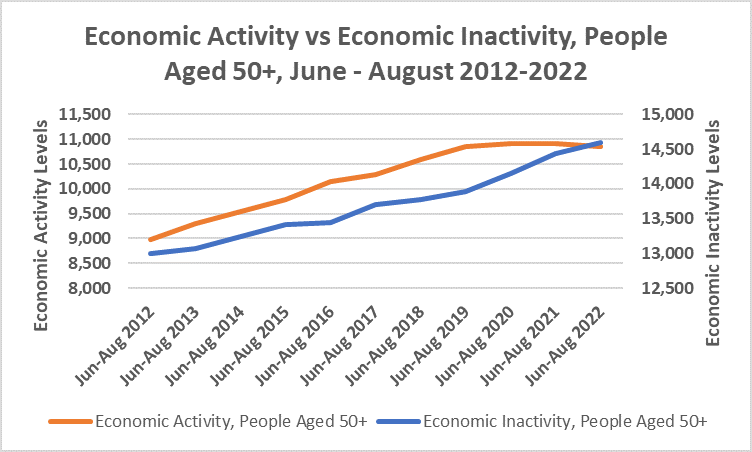October 17, 2022
Flexible working may help to entice large numbers of older people back into work
 There are 712,000 additional people aged over 50 who are economically inactive compared with the same period three years ago (pre-covid pandemic), according to new analysis from Rest Less, a digital community and advocate group for people in their 50s, 60s and beyond. The organisation is now calling on firms to ensure their flexible working practices and in-house training schemes are suitable for all age groups and not just targeted at younger people.
There are 712,000 additional people aged over 50 who are economically inactive compared with the same period three years ago (pre-covid pandemic), according to new analysis from Rest Less, a digital community and advocate group for people in their 50s, 60s and beyond. The organisation is now calling on firms to ensure their flexible working practices and in-house training schemes are suitable for all age groups and not just targeted at younger people.
Rest Less analysed data from the latest Office of National Statistics (ONS) Labour Force Survey (issued Tuesday 11 October) and claims that there are now 14,597,000 economically inactive people aged 50 and older – a record level. This is an increase of 1 percent compared with the same time period last year, a 3 percent increase compared with two years ago and a 5 percent increase compared with three years ago, before the pandemic began.
By comparison, the number of economically active people aged 50 and older has not grown and now stands at 10,846,000 compared with 10,845,000 three years ago. The employment rate has fallen from 42.3 percent to 41.6 percent during this time period, reversing a long-term growth trend.
Economic Activity and Inactivity Levels Amongst People Aged 50+, June-August 2012-2022
In a recent survey by the ONS which questioned more than 10,000 people aged 50-65 who do not currently work, 42 percent said they would consider returning to paid work or self-employment in the future. More than one in three (38 percent) said they would like to move to a new occupation or sector.
When asked what was important to them when looking for a paid job, 69 percent said the right location, 65 percent said a job which suits their skills and experience and 57 percent said flexible working opportunities. These three factors ranked higher than salary: 52 percent said a job that paid enough was important. When provided with a list of employer schemes relevant to midlife employees, flexible working was the most popular. One in three (30 percent) people said flexible working was important to them, followed by good pay (21 percent) and a job which fits around my caring responsibilities (13 percent). When asked whether they’d like to return to full time or part-time work, 67 percent of respondents said part-time.
















